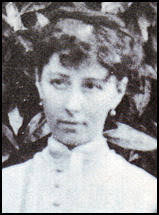Poe was the unfortunate subject of an 1848 doggerel rhyme by James Russell Lowell that pointed out the similarities between #Dickens's novel and the poem: “Here comes Poe with his Raven, like Barnaby Rudge, / Three fifths of him genius, two fifths sheer fudge.” Quite unfair!
Such was Dickens's love of the raven that he immortalized him as "Grip the Raven" in "Barnaby Rudge" (1841) who spouts encouraging and still-relevant sentiments such as "Never say die!" and "Keep up your spirits!"
He wrote several plays at the beginning of his literary career, "The Strange Gentleman" (1836) and the comic opera "The Village Coquettes" (1836). Both were staged, but neither turned out to be a great success
Francis Jeffrey Dickens, or Frank, became "Chickenstalker," a nickname probably inspired by Mrs. Chickenstalker in #Dickens's Christmas story "The Chimes" (1844)
By contrast, Catherine Macready Dickens, Kate, or Katey, was affectionately referred to as "Lucifer Box," because her temper flamed up quickly and warmly, like a tinderbox full of sulfurous lucifer matches, an inferior and volatile forerunner to the 1830s phosphorous match
Sensibly, #Dickens mostly named his children after family members and celebrity friends, but "Boz" also gave them fabulous nicknames typical of his fictional characters.
His eldest Charles Culliford Boz Dickens, or Charley, was dubbed "Flaster Floby" (corruption of Master Toby)
Does anything about this image suggest Christmas to you?
@DrPeteOrford #Dickens150
‘... a boat of dirty and disreputable appearance, with two figures in it, floated on the Thames, between Southwark bridge which is of iron, and London Bridge which is of stone...’
What could say ‘London’ better than the river and its bridges?
#LondonHistoryDay #OurMutualFriend



















